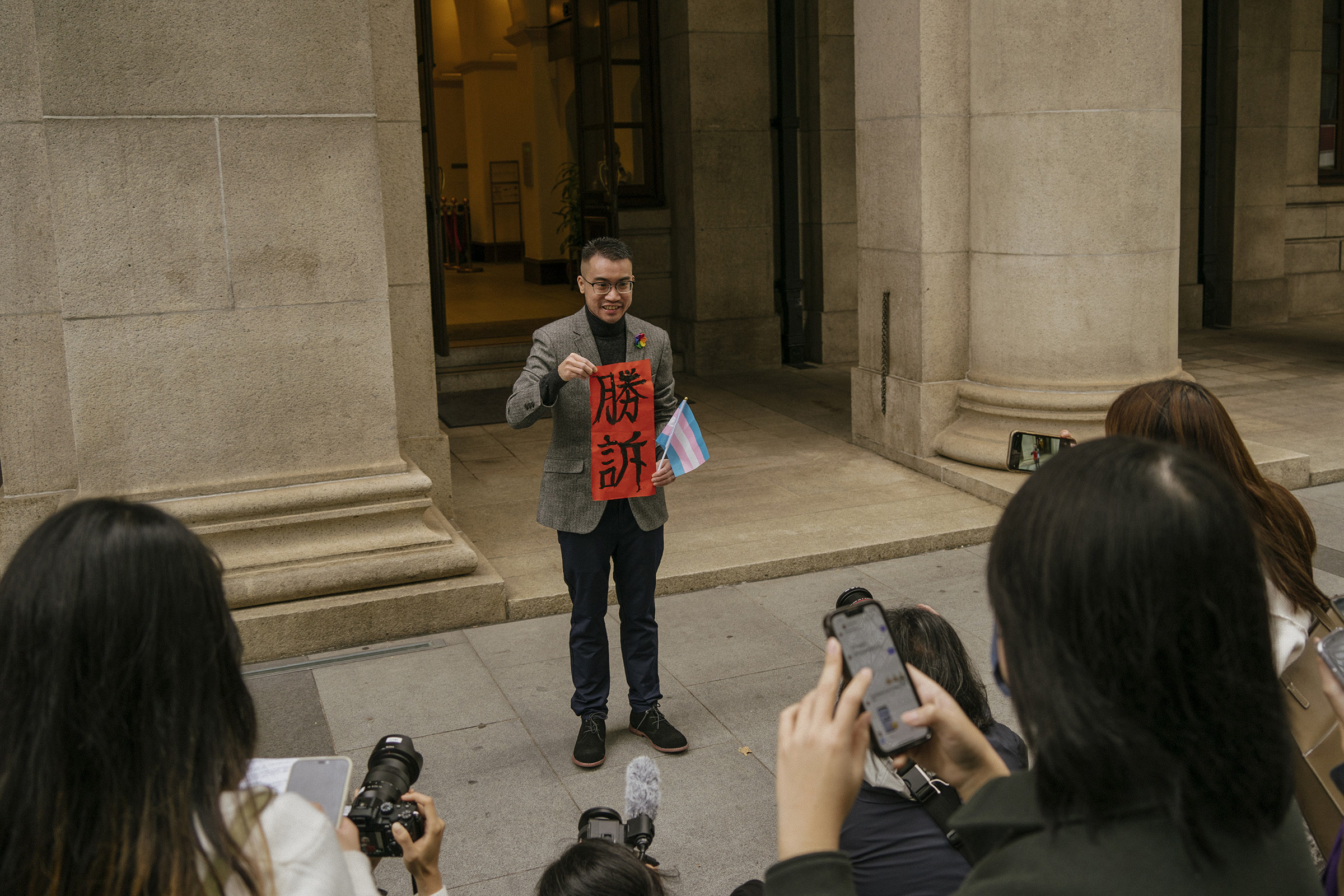Since returning to Hong Kong in 2017, transgender activist Henry Tse says he feels like he’s been running a marathon—except the government keeps moving the finish line.
Tse, 32, scored a historic legal victory in February when the city’s top court ruled against requiring transgender people to undergo full gender-affirming surgery to change their legal gender markers. For many transgender people, surgery can be costly and dangerous, and LGBTQ advocates hope the ruling could pave the way for other nations in largely conservative Asia struggling to implement more inclusive policies. Tse says the continent is “the epicenter of change for the global trans movement.”
But months later, a small F still sits where an M should be on Tse’s ID. “I’m essentially blocked from participating in public life,” he tells TIME. “Whenever I use gender-segregated spaces, it’s the same story again.”

Tse and other advocates continue to protest the stalled implementation by the city’s legislative and executive branches of their judicial victory. In a cosmopolitan former British colony that in recent years has quelled many forms of dissent in pursuit of mainland China’s national security, Tse knows he fights an uphill battle.
A “patriots-only” congressional body has meant LGBTQ rights in the Chinese enclave tend to fall short of basic international considerations and typically toe Beijing’s less inclusive policy line. And despite wider public acceptance of sexual minorities, some population segments remain unsupportive—including Tse’s own parents.
It would be understandable for Tse to want to leave Hong Kong, given his homeland’s hurdles. But with a law education under his belt, and advice from allies in “more democratized” Japan and Taiwan, Tse has taken a deliberate, calculated approach to transforming transgender rights in Hong Kong through judicial reviews—living his belief that law is the vehicle to protect human rights.
With the court ruling yet to be implemented, Tse views his judicial victory as merely “staged,” and he says he’d rather stay in the city to continue the fight.
“If I don’t do it, I don’t see [how] anyone could,” Tse says. “It’s a very demanding job.”
- Cybersecurity Experts Are Sounding the Alarm on DOGE
- Meet the 2025 Women of the Year
- The Harsh Truth About Disability Inclusion
- Why Do More Young Adults Have Cancer?
- Colman Domingo Leads With Radical Love
- How to Get Better at Doing Things Alone
- Michelle Zauner Stares Down the Darkness




